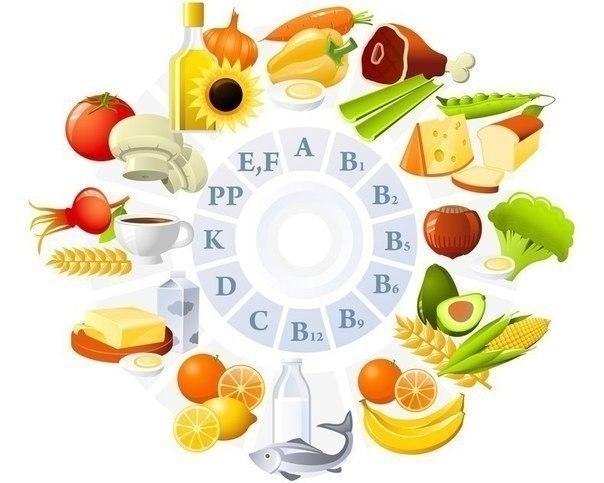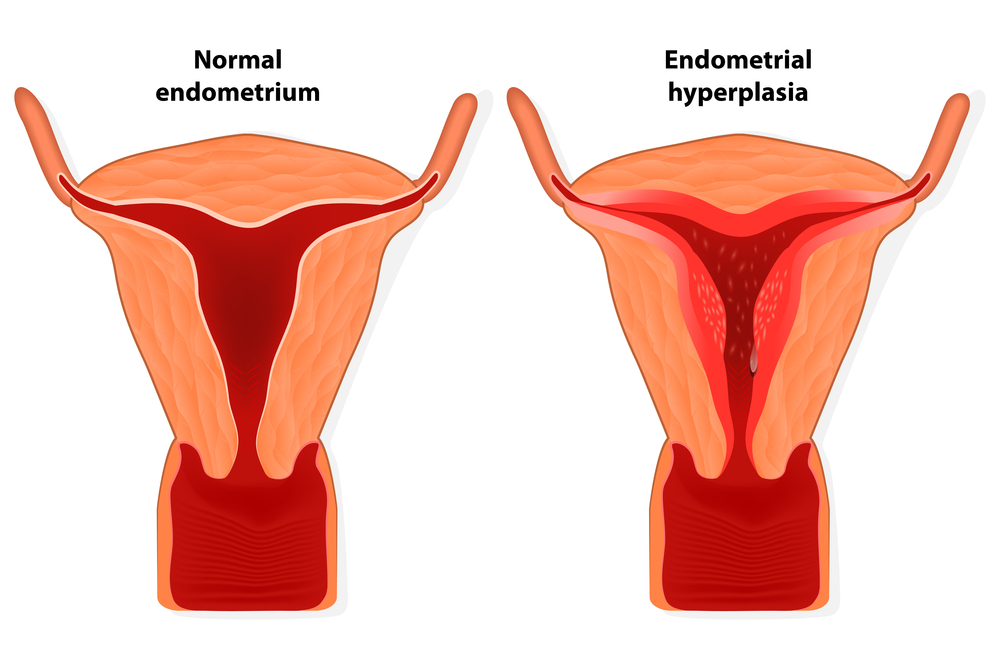Experiencing heavy blood flow during periods? Needing to use double sanitary protection to control your menstrual flow? It may be Menorrhagia. Menorrhagia is a term used to denote abnormally heavy or prolonged uterine bleeding in female. Although heavy menstrual bleeding is a common concern among premenopausal women, most women don’t experience blood loss severe enough to be defined as menorrhagia. In some cases, bleeding may be so severe and relentless. Menorrhagia causes enough blood loss and cramping that your daily activities become interrupted.
Excessive heavy bleeding is a very common problem, affecting one out of five women. In the years before menopause, it is even more common, occurring in as many as one of two women in their 40′s and early 50′s. In the United States, over two physician visits each year are due to problems with excessive menstrual bleeding. The average age of menopause is 52, so many women live unnecessarily with excessive bleeding for many years.
How to know if your menstrual cycle is abnormal? Check the symptoms.
Any one or a combination of symptoms identified below may indicate that a woman is experiencing Menorrhagia. The symptoms include:
- Soaking through one or more sanitary pads or tampons every hour for several consecutive hours.
- Bleeding for longer than a week.
- Passing blood clots with menstrual flow for more than one day.
- Symptoms of anaemia, such as tiredness, fatigue or shortness of breath.
What causes you menorrhagia?
In some cases, the cause of heavy menstrual bleeding is unknown, but a number of conditions may cause menorrhagia. There are several possible causes of menorrhagia, including the following:
- Pregnancy complications: Pregnancy complication involving various episodes like abnormal pregnancy (miscarriage, ectopic pregnancy- implantation of a fertilized egg within the fallopian tube instead of the uterus) or usage of certain birth control devices vis Intrauterine device are likely to cause heavy blood flow.
- Hormone imbalance of sex hormones: The hormone estrogen and progesterone regulates the building up of uterus lining during normal menstrual cycle, this lining gets shed during menses. When there is an imbalance in this duo of hormones, the lining develops in excess and eventually sheds by way of heavy menstrual bleeding. There might be various reasons for hormonal imbalance one of the reasons being dysfunction of the ovaries. Female’s reproductive system produces the eggs which are meant for fertilisation, when these eggs serve no purpose in uterus, they are ought to be released out of the body, which happens during menstruation. However If your ovaries don’t release the eggs during the menstrual cycle, your body doesn’t produce the hormone progesterone, as it would during a normal menstrual cycle. This leads to hormone imbalance and may result in menorrhagia.
- Overgrowth of tissue in the endometrium uterus or abnormal projection in uterine line: When the uterus develops the non-functional and unwanted mass within, the uterine lining becomes too thick which results in abnormal bleeding and may lead to complications such as anaemia due to heavy blood loss. In few cases, during child bearing, female body develop benign non-cancerous growth like uterine fibroids and polyps. These projections rarely cause cancer but if there is a genuine cancer in uterus (uterine cancer), ovary (ovarian cancer) or cervices (cervical cancer) can cause excessive menstrual bleeding.
- Willebrand’s disease: When the platelets are deficient or body develops an inability to clot the blood then blood flow is not stopped, Willebrand’s disease is such a disease in which blood-clotting factor (Willebrand factor) is deficient or impaired hence not able to support blood clotting resulting heavy menstrual bleeding.
- Other factors: Certain drugs, including anti-inflammatory medications and anticoagulants, can contribute to heavy or prolonged menstrual bleeding. A number of other medical conditions, including pelvic inflammatory disease (PID), thyroid problems, endometriosis, and liver or kidney disease, may also be linked up with menorrhagia.
Diagnosis & Treatment of Menorrhagia
A diagnosis of menorrhagia can only be certain when the health care provider rules out other menstrual disorders. Diagnostic procedures for menorrhagia may include blood test, ultrasound, Hysteroscopy (A visual examination of the cervix and the interior of the uterus), Biopsy (close examination of uterus tissue sample under microscope).
Treatment: The goals of treatments of menorrhagia are to control the bleeding, prevent and treat anaemia, and restore an acceptable menstrual pattern. Excessive blood flow can be treated with surgical intervention as well as with natural alternatives that is by taking supplements and diet consistency.
Surgical Intervention
- Endometrial ablation – A procedure to destroy the lining of the uterus.
- Endometrial resection – A procedure to remove the lining of the uterus.
- Hysterectomy – A surgical removal of the uterus.
Alternative treatment: Herbs and Vitamins
Vitamins and minerals to Regulate Menses
Diet can play therapeutic approach to menorrhagia. The diet should be low in animal fat and high in fish oils. Two foods that have been repeatedly mentioned in their ability to regulate the menstrual cycle are flaxseeds and soy protein.
- Vitamin B Complex – It is believed that with deficiency of Vitamin B complex, the liver loses its ability to inactivate estrogen. Some cases of menorrhagia are due to release of excess estrogen acting on uterus. The vitamin B complex may help to normalize estrogen metabolism.
- Vitamin C and Bioflavonoids – Vitamin C, along with bioflavonoids, help reduce heavy bleeding by making the capillaries stronger and preventing them from becoming fragile. In one small study with 18 women who had heavy menstrual bleeding, bleeding improved in 16 out of the 18 patients when the women took Vitamin C and bio-flavonoids. In addition, vitamin C can also help women who have suffered from iron deficiency from menorrhagia by increasing iron absorbency.
- Vitamin K – Expert says that Vitamin K is best in helping blood clot properly and in preventing excessive Gynaecological bleeding. Blood flow is not stopped because of platelets deficiency. Vitamin K bolsters the activity of platelets. The recommended daily dose of vitamin K is 65 mcg.
- Iron – Chronic iron deficiency can also be a cause of menorrhagia. Raise the iron consumption but keep it as much natural and organic as possible. Foods high in iron in particular should be incorporated into the general diet, especially when heavy blood loss persists on a monthly basis. Brewer’s yeast, wheat germ and blackstrap molasses are both excellent sources of iron. Apricots, eggs, ground beef, raisins, beans, cooked spinach, and chicken are also high in iron.
- Herbs- A variety of different herbal supplements have been used to treat menorrhagia.Also read: 8 Genius Ways To Use Veggies for Weight Loss and Boosting Health
- Chasteberry (Chaste Tree) – Chasteberry imparts progesterone-like effects to the body by increasing the lutenizing hormone and inhibiting the release of FSH and balances the estrogen-progesterone level. Pregnant women should not use it to avoid miscarriage.
- Ginger – Ginger has been shown to inhibit synthesis of prostaglandin enzyme believed to be associated with excessive menstrual loss. This property of inhibition of prostaglandin enzyme makes it a very good anti-inflammatory agent, which is effective in reducing the heavy blood flow.
- Astringent herbs – The astringent herbs are used to correct uterine or cervical bleeding. Herbs that contain tannins such as tea, roses, grape wine, and oak bark are considered astringent. Of these, shepherd’s purse has a long history of use in the management of preventing gynaecologic haemorrhage.
- Blue Cohosh – The root of the blue cohosh, a perennial herb that grows all over the United States, if used in combination with astringent herbs acts as a uterine tonic and helps regulate the amount of flow during menstruation.
- Yarrow herb and black haw – These two herbs traditionally have been known as a uterine stimulant and antispasmodic and are effective for the treatment of menstrual problems.Also read: Vaginal Yeast Infections- Causes and Symptoms
Do share your views with us in the comments section below. Also, share this with your friends and family for their best health.




